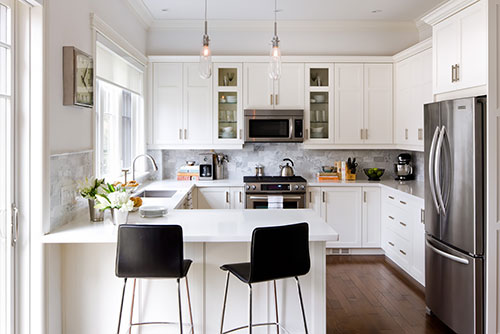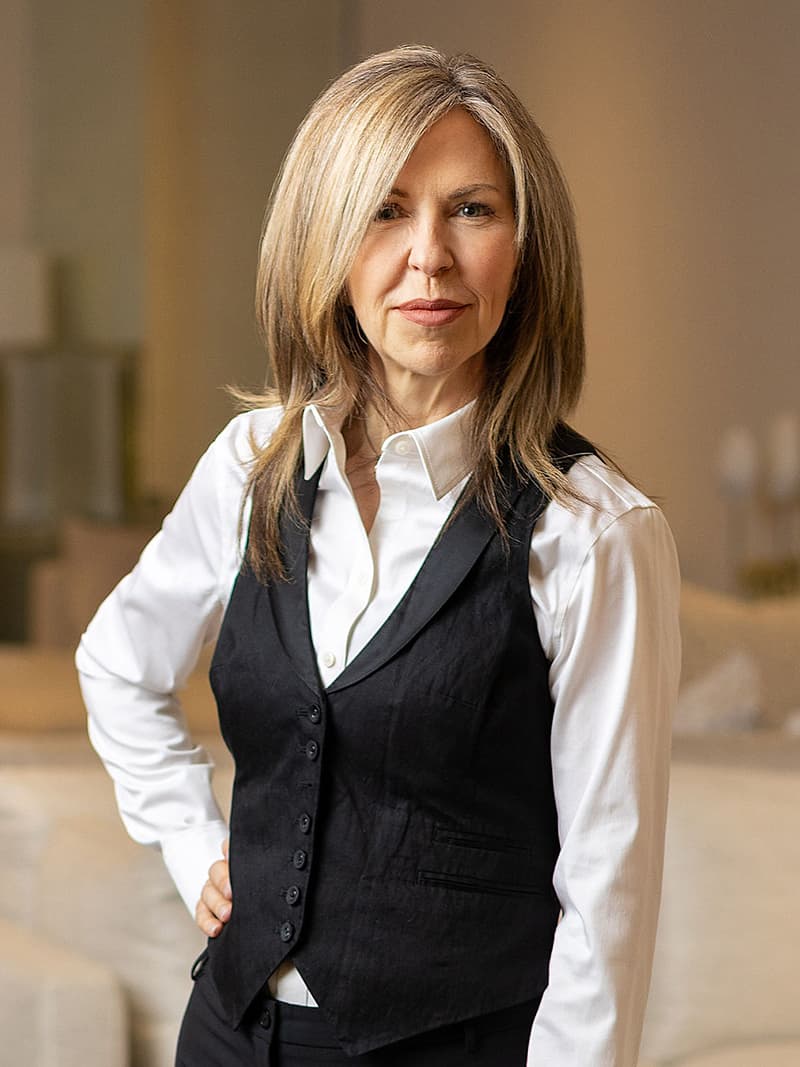
Even if you aren’t fully renovating your kitchen, simply updating the countertop surface and colour can change the feel of your kitchen.
With the improvements in technology and the availability of new materials, there are lots of choices for countertops today. Using a solid surface material is considered an upgrade and this has a great return on investment when it comes to resale.
The generic term, ‘solid surface’ refers to any material that is solid all the way through. This means it doesn’t have a topcoat that is different from the centre core. Solid surface materials are consistent in colour and content throughout. The advantage of this can be durability, hardness, temperature dispersion and edge profile options. Marble, Quartz, Granite and Corian (or similar materials like Gibraltar or Zodiac) are all considered Solid surfaces.
Plastic Laminate
Plastic Laminate is a thin plastic sheet moulded around a particleboard centre with a few options for edge detail. This is not a solid surface material. Although not loved by designers, real estate agents or homeowners alike, laminate can be a practical and inexpensive solution in certain spaces. Also, laminate companies continue to come out with new colours and options that look pretty darn good for the price!! This is the most affordable option.
Corian
Corian is a man-made resin product that comes in multiple colours. Corian is well known for its integrated sinks and seamless joints. Less glossy than quartz or natural stones, it has a softer look and feel. An advantage to Corian is that it can have adjustments made to it such as extending a counter top without removing the top or creating seams. Corian is an easy to maintain pliable material with a premium price tag!
Marble
As beautiful as Marble is, I like to stick to it on backsplashes when designing kitchens rather than on counter tops. The reason being, it can be very sensitive to wine stains or de-glossing from lemons, tomatoes or vinegar. A matte or leathered-finish marble can be slightly more forgiving, but it’s only for customers who can handle the natural marking that will occur. If you can’t handle this or have a client who you know wont like this, choose something else!! Marble is expensive, beautiful but sensitive!!
Granite
Granite is a different natural stone than marble, in the fact that it is impervious to wine, acidic food and most scratches & wear and tear. (Hence tombstones are now granite and no longer marble!). Granite has more of a pebbled pattern and less veins than marble. It is harder to find lighter colours or softer designs. This can make granite unpopular based solely on aesthetics, not on performance.
There has been a lot of discussion made about needing to seal granite regularly. I can say I have not had a client seal their granite, other than the first time in15 years of kitchen design. You can be hard on it, because it can take it! Granite ranges in price, but can be similar to marble in cost.
Quartz
Quartz is the generic term used to describe a man-made material formulated from the quartz found in granite and then recast in resin. It is very hard, non-porous, scratch resistant and nice looking. It is softer in pattern than granite, but it is not as reliable for heat dispersion. You may want to stay away from quartz around fireplaces and try not to rest hot pots on it. Quartz is a good choice if you want a variety of colours or lots of companies to choose from. It costs about the same as granite.
Soapstone
Soapstone is new to the solid surface lineup, although it’s been around for a long time. It is naturally heat resistant and easy to maintain. You can have integrated sinks, with soapstone, included within the counter top. It is less glossy than marble or granite and offers a variety of pattern, but always in a dark tone. It is an excellent material for dispersing heat so it’s perfect around fireplace openings or in high-wear kitchens. Soapstone is the same in cost as high-grade granite.
Quartzite
Often confused with the name quartz, quartzite is a natural stone that has the durability of granite, but the veining pattern of marble. It is a delicate material during manufacture, so it requires a good fabricator. Once it is installed, it performs well. Slabs generally have soft wave patterns in a full range of largely neutral colours. You can expect premium pricing with Quartzite.

